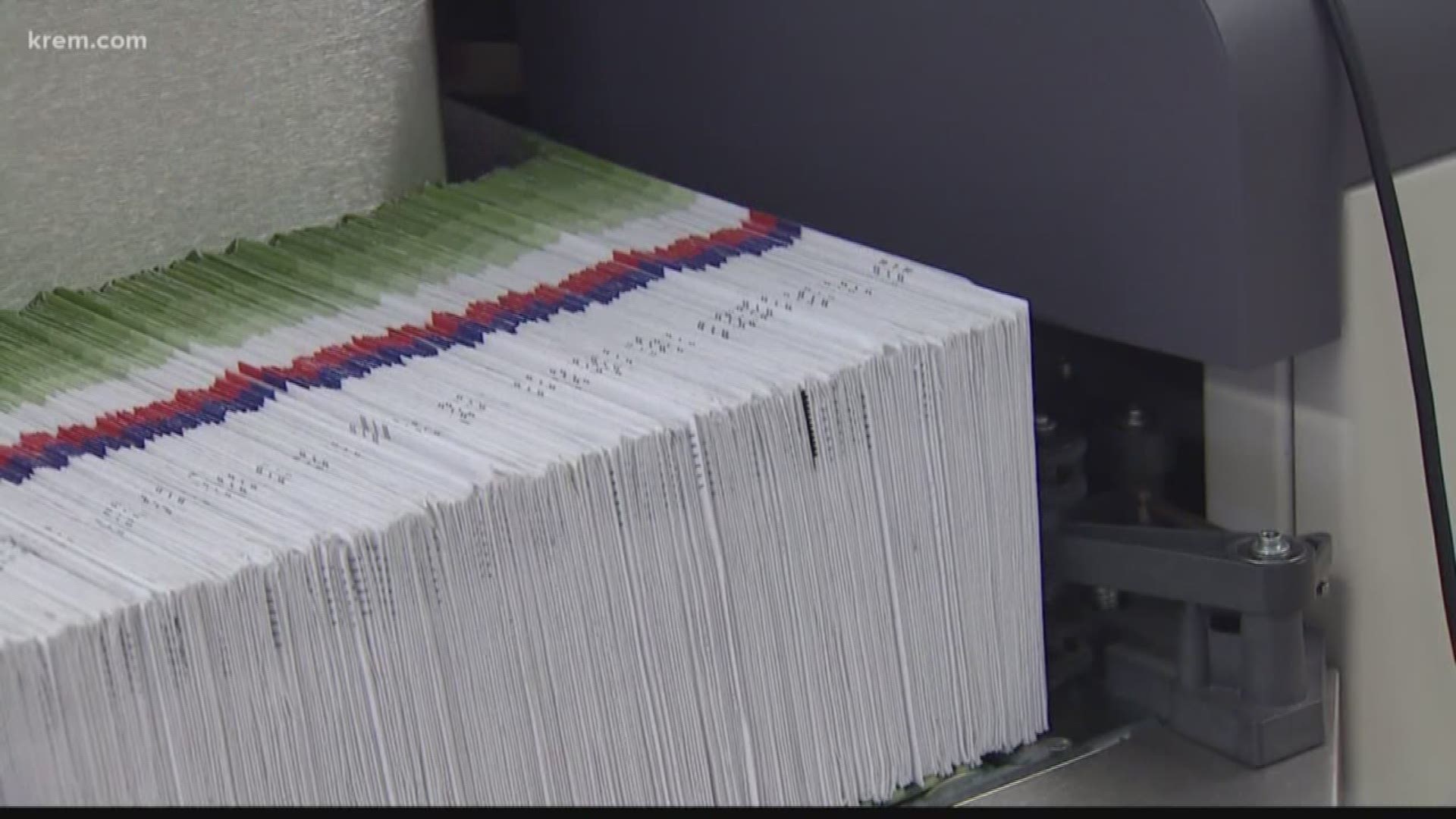SPOKANE, Wash. — On Friday, ballots will be sent out to all Washington voters for the 2020 presidential primary.
This election works differently from every other race for office in the state.
Normally, there's a primary in August, and the top two vote-receivers for each office move on to the November general election, regardless of their party. Because of that, when you register to vote in Washington, you don't register with a particular party.
But things are totally different in the race for president.
For starters, instead of in August, this primary happens on March 10.
Second, rather than all the candidates being lumped together, when you get this ballot, it will have two sides. One has Democratic candidates and one has Republican candidates. You can vote on one side or the other, but not both. It doesn't matter who you've voted for in the past or who you might vote for in the future; you're allowed to vote in either primary.
But when you choose one, you have to sign a statement on the envelope promising not to also vote in the other. Again, that's not the same thing as registering with a party.
That said, which primary you choose will become public record. The specific candidate you pick stays private, however.
Now, what options will you have?
Those were chosen by the respective state parties a while ago.
If you vote in the Republican primary, you have exactly one option: President Trump. That's it.
If you vote in the Democratic primary, you'll see 13 names plus an "uncommitted delegates" option — we'll explain that later.
Several of the candidates that will be on the Washington Democratic ballot have already dropped out. You can vote for them if you want, but obviously that vote won't have much impact.
So, what if you're a Republican but don't want to use your vote in the uncontested race? Can you vote in the Democratic primary, even if it's just to mess with it?
Yep, you can. But you will need to sign that statement mentioned earlier, which will become public record.
Then what happens after you vote?
The ballots are tallied by each county and reported to the state. Then, delegates are assigned.
Remember, presidential nominees are actually chosen at each party's national convention. Each state sends delegates to those conventions to make that decision.
At least initially, who those delegates vote for is pre-determined by the results of their state's primary. If after one round of voting, no candidate has a majority of delegates, delegates are free to vote for whoever they like. (Selecting "uncommitted delegates" on your ballot means you would prefer they be free to vote for whoever from the get-go.)
In Washington, delegates are pledged to each candidate proportionally.
Anyone who gets at least 15 percent of the vote statewide, or 15 percent inside a US congressional district, will get a share of delegates.
That means when ballots are counted March 10, there won't be just one winner.

